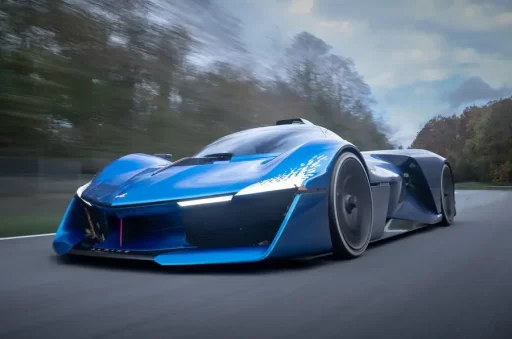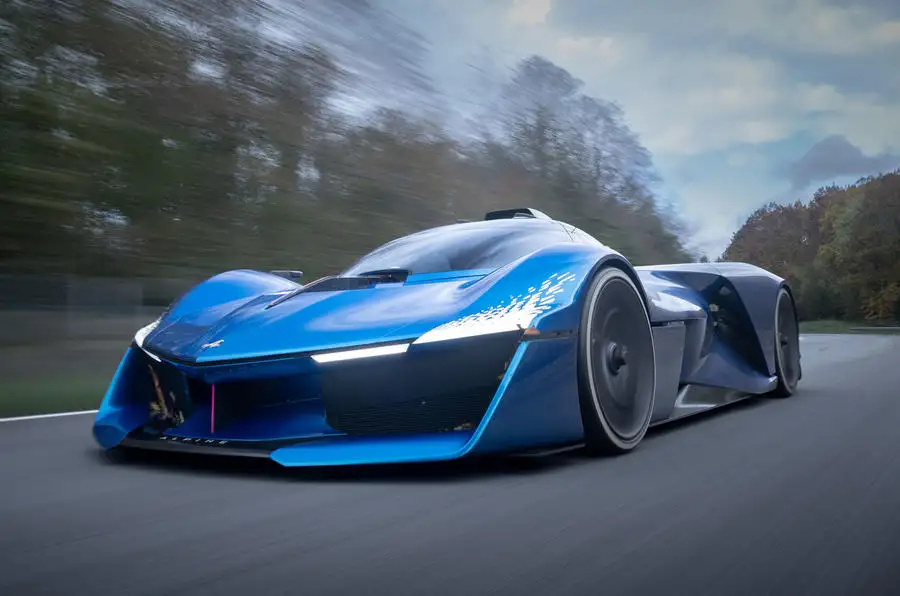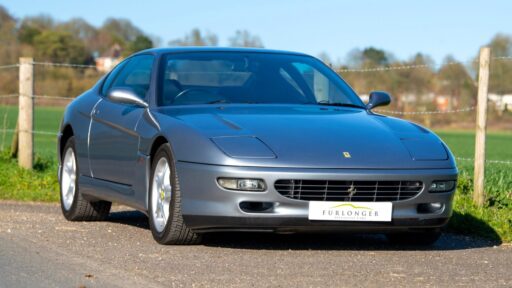Alpine is exploring the possibility of putting its extreme Alpenglow concept into limited production as a road-going supercar powered by a hydrogen-combustion engine.
First unveiled in 2022, the Alpenglow concept recently evolved into the Hy4, a rolling prototype equipped with the French brand’s inaugural hydrogen combustion engine.
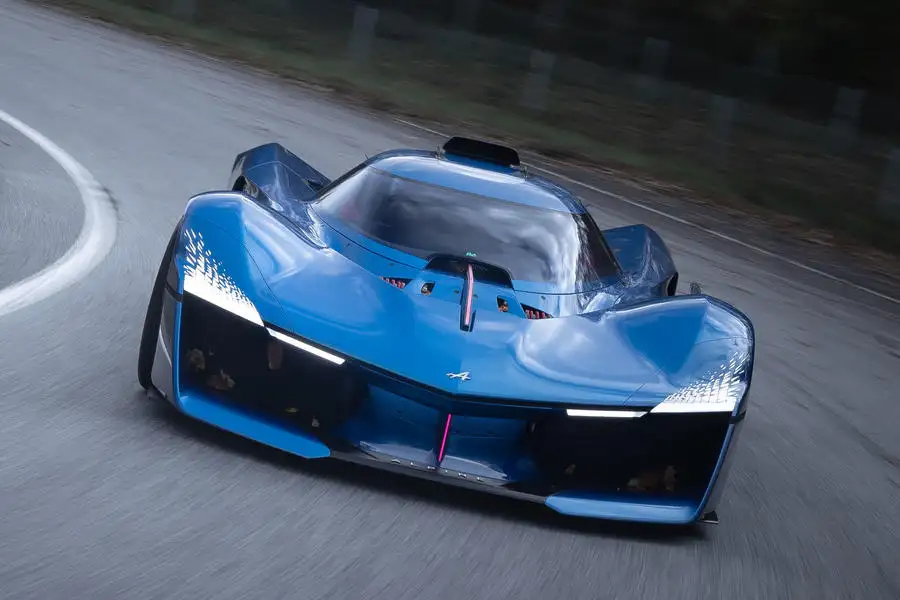
Although the Hy4 faced an electrical fault during its anticipated public demonstration at the World Endurance Championship round at Spa-Francorchamps, Belgium, Alpine design chief Antony Villain remains optimistic about the car’s production prospects.
Speaking to Autocar, Villain hinted at the future of the Alpenglow: “When we designed the [Alpenglow] we had two fields in mind: the production car and the racing car.”
Initially designed alongside the firm’s Le Mans Hypercar racer, the A424, the Alpenglow has recently shifted focus towards becoming more road-oriented.
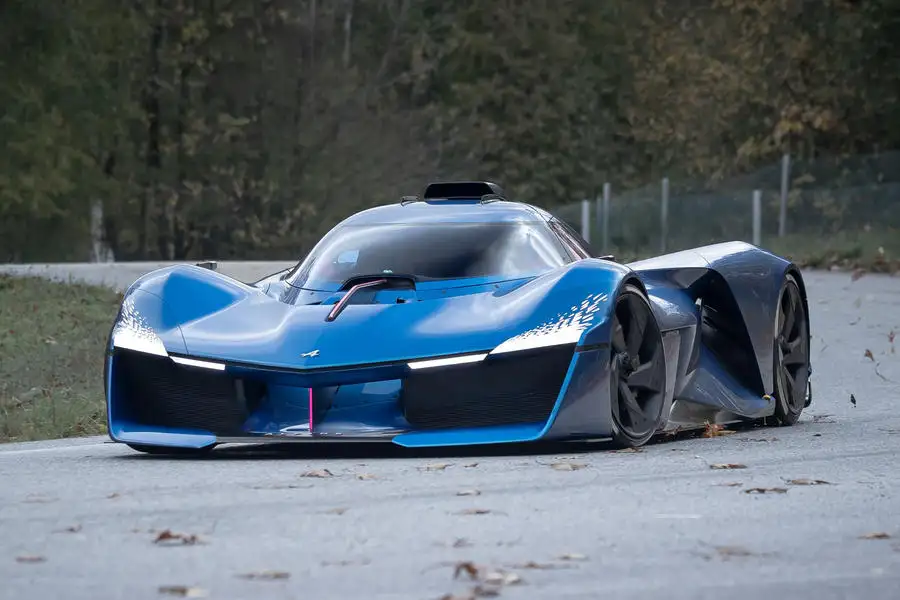
The Hy4 variant, for instance, replaced the original single-seat interior with a more conventional two-seat configuration, utilizing a Ligier LMP3 racing chassis instead of the concept’s bespoke frame.
Villain expressed a positive outlook on the Alpenglow’s potential production: “Why not have that on the roads? We want to keep both ways [hydrogen-combustion and battery-electric] possible. Maybe we could do a little series of these cars for the road.”
Development and Technical Specifications
Key to the Alpenglow’s transition to a production model is the development of a new V6 hydrogen combustion engine, which Alpine is developing in-house.
This engine aims to improve efficiency compared to the current Hy4’s turbocharged 2.0-litre unit, which produces 335bhp. According to François Champod, Alpine’s director of racing vehicles, the V6 will offer more power while ensuring a user-friendly driving experience.
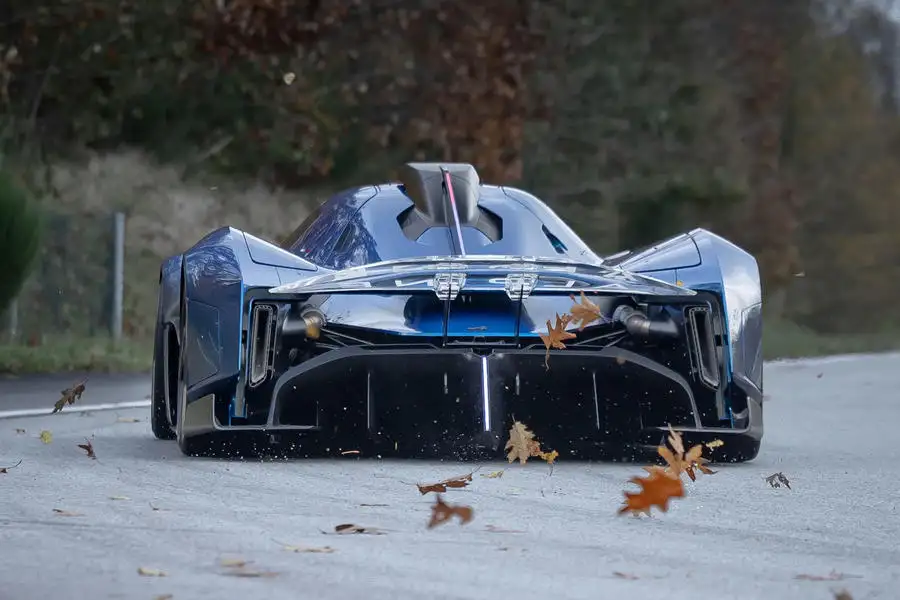
Alpine’s chief hydrogen engineer, Pierre-Jean Tardy, noted the unique challenges of hydrogen combustion, such as managing NOx emissions and optimizing the fuel-to-air mix within the combustion chamber.
He highlighted that running lean with hydrogen results in lower exhaust gas temperatures, requiring innovative solutions to maintain turbocharger performance and mitigate engine knock.
Future Prospects and Challenges
While Alpine’s hydrogen-combustion project is still in its early stages, the company is committed to advancing this technology. The new V6 engine recently entered dynamometer testing, and Alpine aims to have it powering the Alpenglow by the end of the year.
The brand also plans to enter a hydrogen-combustion car into the 24 Hours of Le Mans in 2027, pending competition regulation developments.
Regarding the road car’s production timeline, Champod indicated that it depends on the development of hydrogen infrastructure.
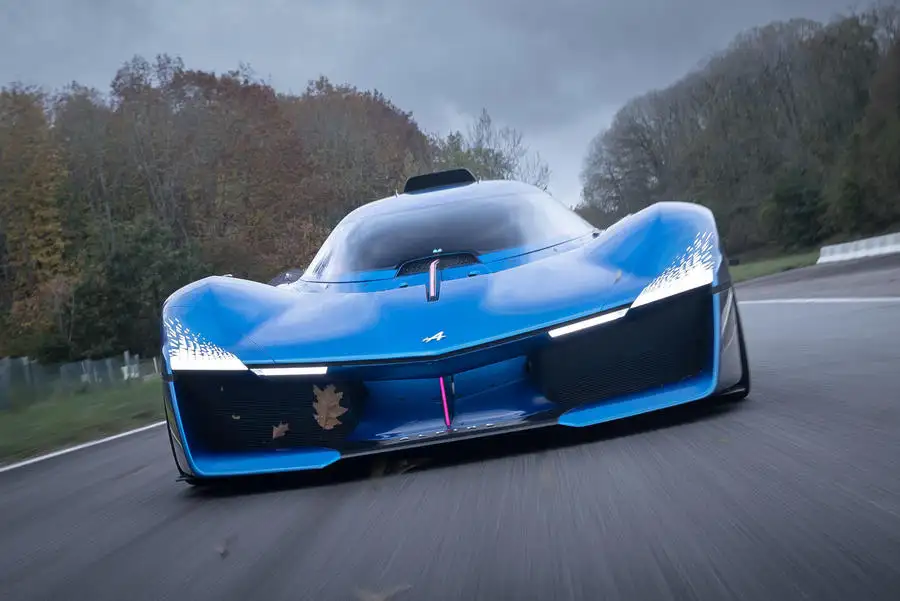
He emphasized that a broader network of hydrogen refueling stations, driven by demand from trucks and light commercial vehicles (LCVs), would be essential for the feasibility of hydrogen-powered sports cars.
Villain pointed to Renault Group’s Hyvia joint-venture for hydrogen-fuel-cell vans as a potential catalyst for infrastructure development.
He emphasized that the network expansion driven by trucks and LCVs could eventually benefit passenger cars like the Alpenglow.
Sustainability Focus
Alpine is committed to using decarbonized hydrogen, either ‘blue’ or ‘green’. Blue hydrogen is produced from natural gas with captured CO2 emissions, while green hydrogen is generated through water electrolysis using renewable energy sources. Villain stated, “Green hydrogen is mandatory, otherwise that doesn’t make sense.”
According to a January 2024 report by consultancy McKinsey, “nearly all” new hydrogen production is expected to be “clean” from next year.
Villain emphasized, “Green hydrogen is mandatory, otherwise that doesn’t make sense.”
Tardy added, “[We will use] any color which is decarbonized. What we want to do is bring our contribution. Our contribution is typically in the technologies in using hydrogen.”
In conclusion, Alpine’s ambitious Alpenglow project signifies a bold step towards integrating hydrogen-combustion technology in high-performance road cars. With ongoing development and infrastructural advancements, the Alpenglow could pave the way for a sustainable future in automotive design and performance.
Subscribe today for the freshest car news delivered to your inbox
